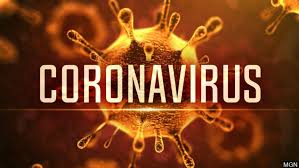
UPDATE: 19APR21 - Govt '"Updated 'Status of COVID-19' section" (PDF)
___
Change in COVID-19 HCID designation - As of 19 March 2020, COVID-19 is no longer considered to be a high consequence infectious disease (HCID) in the UK (17JUN20). See HCID Monthly Summaries.
In the UK, a high consequence infectious disease (HCID) is defined according to the following criteria:
- acute infectious disease
- typically has a high case-fatality rate
- may not have effective prophylaxis or treatment
- often difficult to recognise and detect rapidly
- ability to spread in the community and within healthcare settings
- requires an enhanced individual, population and system response to ensure it is managed effectively, efficiently and safely
HCID September to October 2020
(The most recently published/current document as of 01DEC20)
No COVID19?
(The most recently published/current document as of 29NOV20)
No COVID19?
COVID-19 is still removed from the HCID list
For awareness, regular reporting of MERS cases seems to have stalled, especially for Saudi Arabia, since the start of the COVID-19 pandemic.
Status of COVID19 - 17 June 2020
As of 19 March 2020, COVID-19 is no longer considered to be a high consequence infectious disease (HCID) in the UK.
The 4 nations public health HCID group made an interim recommendation in January 2020 to classify COVID-19 as an HCID. This was based on consideration of the UK HCID criteria about the virus and the disease with information available during the early stages of the outbreak. Now that more is known about COVID-19, the public health bodies in the UK have reviewed the most up to date information about COVID-19 against the UK HCID criteria. They have determined that several features have now changed; in particular, more information is available about mortality rates (low overall), and there is now greater clinical awareness and a specific and sensitive laboratory test, the availability of which continues to increase.
The Advisory Committee on Dangerous Pathogens (ACDP) is also of the opinion that COVID-19 should no longer be classified as an HCID.
The need to have a national, coordinated response remains, but this is being met by the government’s COVID-19 response. (PDF & 10 day image)
Cases of COVID-19 are no longer managed by HCID treatment centres only. All healthcare workers managing possible and confirmed cases should follow the updated national infection and prevention (IPC) guidance for COVID-19, which supersedes all previous IPC guidance for COVID-19. This guidance includes instructions about different personal protective equipment (PPE) ensembles that are appropriate for different clinical scenarios. (Definitions of outbreaks)
On 9 January, WHO announced that a novel coronavirus was responsible for the outbreak of viral pneumonia first reported on 31 December 2019 in Wuhan City, Hubei Province in central China. The first case outside of mainland China was reported on 13 January in Thailand, in an individual who had recently been in Wuhan. On 30 January, the International Health Regulations (2005) Emergency Committee agreed that the outbreak meet the criteria for a Public Health Emergency of International Concern. By 31 January 2020, 9,826 cases had been confirmed globally of which 99% were in China. By 29 February, there were 85,403 cases globally, the majority (79,394) still in China. During March however, there were dramatic and widespread increases with a global total of 750,890 cases and over 36,000 deaths by the end of the month.
- guidance is available in the Health Professionals collection on GOV.UK
- see also UK Surveillance reports (PDF-WK37)
- see features of 16,749 hospitalised UK patients with COVID-19 [pre-print article]
In January 2020, the 4 UK public health agencies made a precautionary interim recommendation, based on the limited data available at the time, that COVID-19 should be considered to be an HCID, adding that a review of HCID status would take place once further information had accumulated. That review took place in March 2020 and representatives from all 4 public health agencies were unanimous in their opinion that COVID-19 should no longer be on the list of (Airborne) HCIDs. This view was supported by the Advisory Committee on Dangerous Pathogens, and the new recommendation was accepted by DHSC and NHS England and NHS Improvement.
Key changes that led to this decision were:
- greater knowledge about fatality rates globally; based on international data available for cases where outcomes are known, the fatality rate is low overall, at around 1%
- greater clinical awareness and access to specific laboratory tests mean that it is much less difficult to recognise and detect cases rapidly
This change in status does not detract from the seriousness of the COVID-19 pandemic, which is reflected by the fact that COVID-19 has its own separate pandemic response programme.
---
See also:
- COVID19 and COVID1984 information
- BOB BeInvolved page



Make A Comment
Comments (0)